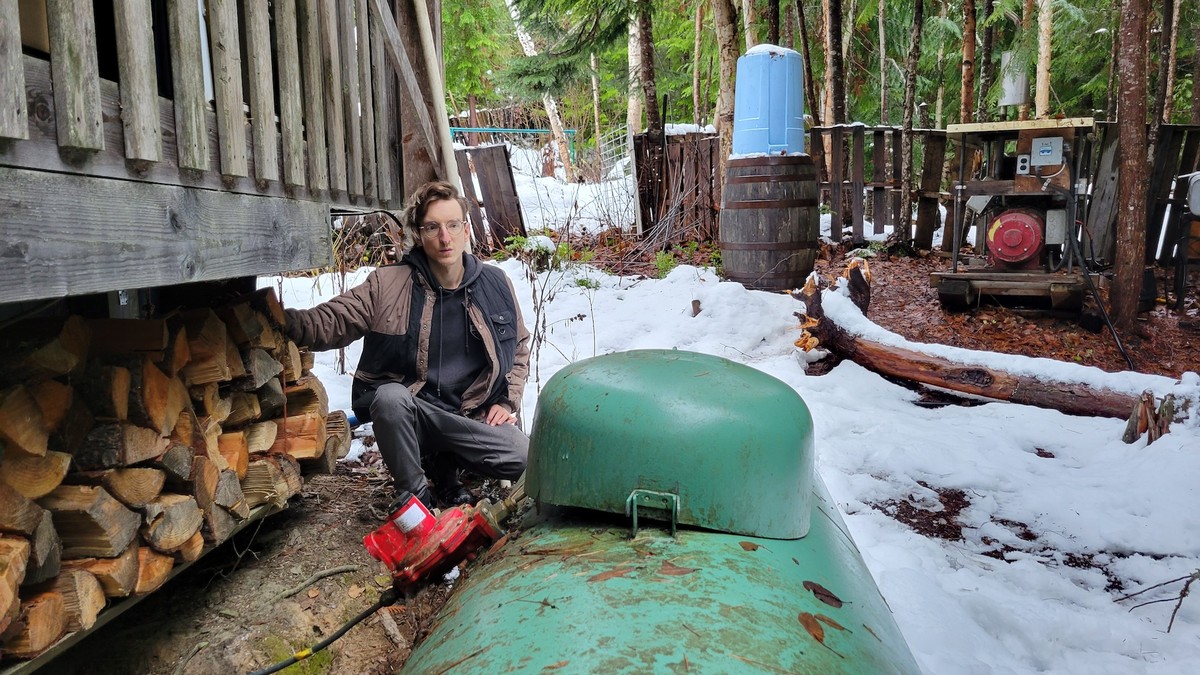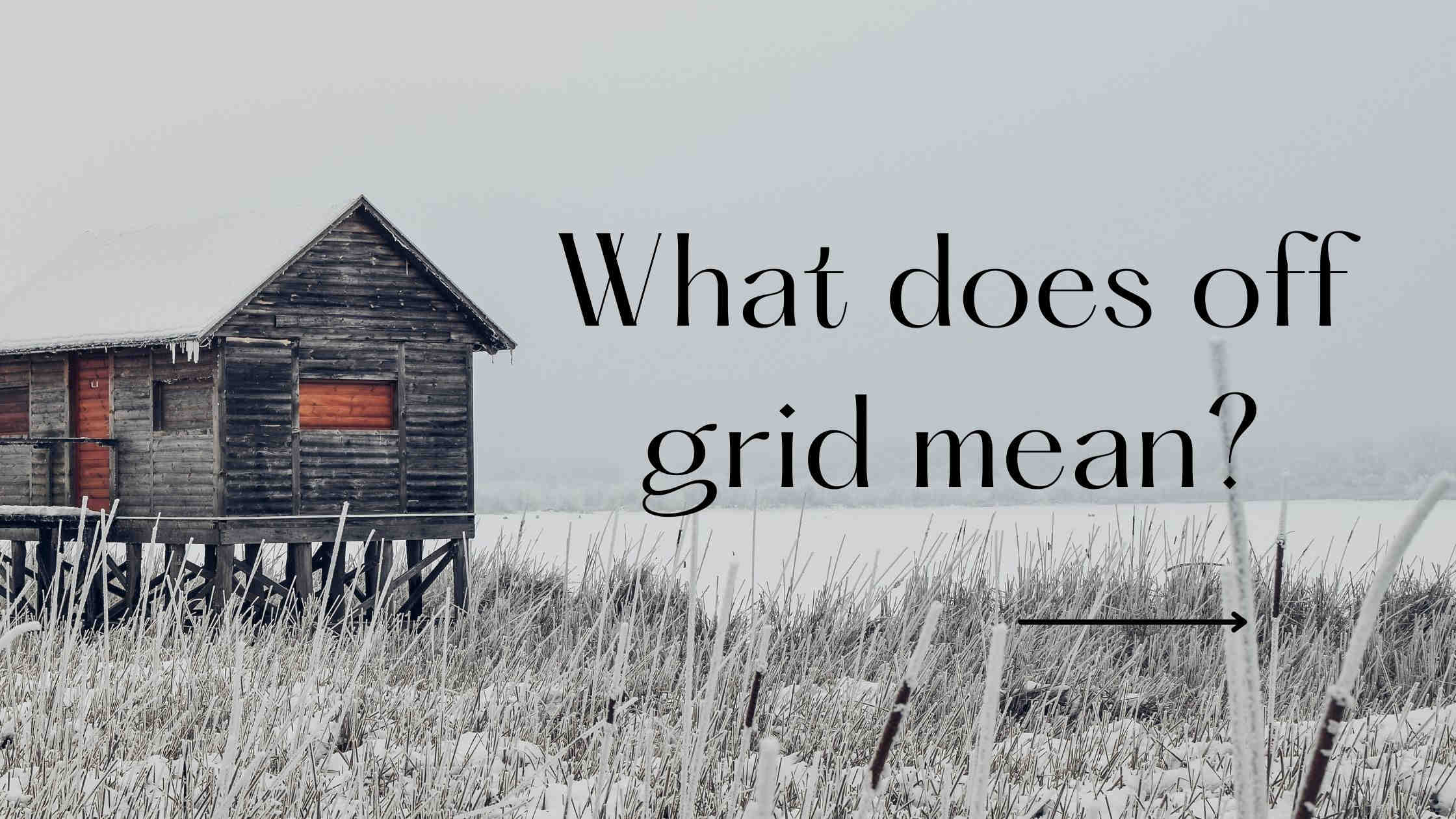Off grid living a lie – Off-grid living a lie? The romanticized image of self-sufficient living, often portrayed in media, clashes sharply with the harsh realities faced by those who attempt it. This article delves into the myths and misconceptions surrounding this lifestyle, exploring the significant financial, environmental, social, and psychological challenges involved. We examine the hidden costs, the technological dependencies, and the limitations of true self-sufficiency, revealing a stark contrast between the idealized vision and the often-brutal reality.
From the substantial upfront investment in land and infrastructure to the ongoing maintenance and potential for unforeseen emergencies, the economic burden of off-grid living can be unexpectedly high. Furthermore, the environmental impact, while often touted as a positive, can be significant depending on energy choices and waste management practices. Social isolation and the psychological toll of a demanding lifestyle are also major factors rarely discussed in the glossy portrayals of off-grid existence.
Ultimately, this investigation aims to present a balanced and realistic view of this increasingly popular, yet often misleading, lifestyle choice.
The Allure of Off-Grid Living: Off Grid Living A Lie
The romanticized vision of off-grid living, frequently portrayed in media, depicts a life of self-sufficiency, tranquility, and escape from the pressures of modern society. Images of idyllic cabins nestled in pristine forests, individuals harvesting their own food, and a complete disconnect from technology paint a picture of unparalleled freedom and connection with nature. This idealized portrayal, however, often overshadows the harsh realities of such a lifestyle.
Common Misconceptions about Self-Sufficiency
The belief in effortless self-sufficiency is a pervasive misconception. Many assume that simply moving to a remote location and building a cabin equates to a sustainable, off-grid existence. This overlooks the significant skills, resources, and continuous effort required for successful self-sufficiency. For example, growing enough food to sustain oneself year-round requires extensive knowledge of horticulture, pest control, and preservation techniques, along with considerable land and suitable climate.
Similarly, generating reliable power without grid connection necessitates expertise in renewable energy systems and significant upfront investment. The reality is that complete self-sufficiency is extremely challenging, even for the most experienced individuals.
Challenges and Sacrifices of Off-Grid Living
Life off-grid presents numerous practical challenges. Access to essential services like healthcare, education, and reliable communication is often limited or nonexistent. Repairing equipment or sourcing necessary parts can be incredibly difficult and time-consuming, potentially leading to extended periods without crucial resources. The physical demands of maintaining an off-grid lifestyle, including manual labor, resource gathering, and infrastructure upkeep, are substantial.
Furthermore, social isolation and the lack of readily available social interaction are significant considerations. These sacrifices are often overlooked in the idealized depictions of off-grid living.
Idealized Vision vs. Practical Realities
The stark contrast between the idealized vision and the practical realities of off-grid living is striking. While the media often focuses on the purported benefits of escaping the modern world, it rarely depicts the constant struggle for survival, the limitations imposed by resource scarcity, and the unwavering commitment required for long-term success. The romantic notion of a simple, peaceful existence often clashes with the demanding and unpredictable nature of off-grid life.
For instance, a drought could decimate a self-sufficient farmer’s crops, while a severe winter storm could leave an individual without power for extended periods. The idyllic imagery often fails to capture the daily struggles and compromises necessary to maintain a sustainable off-grid lifestyle.
Check off grid living jamaica to inspect complete evaluations and testimonials from users.
Social and Psychological Factors
The romanticized image of off-grid living often overlooks the significant social and psychological adjustments required. While self-sufficiency and connection with nature are alluring aspects, the reality involves considerable challenges to mental and emotional well-being, particularly concerning social interaction and community support. Successfully navigating this lifestyle necessitates a proactive approach to building resilience and fostering supportive networks.Off-Grid Living and Social Isolation: A significant concern for individuals choosing an off-grid existence is the potential for social isolation.
The physical distance from friends, family, and established community networks can lead to feelings of loneliness and disconnect. This isolation can be particularly acute for those accustomed to a busy social life or who rely heavily on social interaction for emotional support. The lack of readily available social support systems can exacerbate stress and complicate the management of everyday challenges.
Social Isolation and Community Support
The limited access to social interaction inherent in off-grid living can have a profound impact on mental health. Studies have shown a strong correlation between social isolation and increased risk of depression, anxiety, and other mental health issues. The absence of casual social encounters, the difficulty in accessing mental health services, and the lack of readily available support networks can amplify these challenges.
For example, a family living remotely might find it difficult to access immediate medical attention or childcare support, placing additional stress on the individuals involved. Furthermore, the absence of diverse perspectives and the constant immersion in a self-sufficient lifestyle can lead to cognitive biases and limited exposure to different viewpoints.
Psychological Challenges and Coping Mechanisms
Adapting to the demands of off-grid living requires significant psychological resilience. Individuals must be capable of self-reliance, problem-solving, and effective stress management. The constant need to address practical challenges, such as maintaining infrastructure, securing food and water, and coping with unpredictable weather conditions, can create significant stress. Successful off-grid living often involves developing robust coping mechanisms, including mindfulness practices, effective time management, and the cultivation of inner strength.
For instance, learning basic carpentry skills not only allows for self-sufficiency in home repairs but also provides a sense of accomplishment and boosts self-esteem.
Mental Health Implications: Off-Grid vs. Conventional Living
While conventional living presents its own set of stressors – such as work pressure, financial anxieties, and social comparisons – the challenges faced in off-grid living are often of a different nature. Conventional living often offers greater access to social support, mental health services, and diverse social networks. Off-grid living, however, may require individuals to develop a higher degree of self-reliance and resourcefulness.
A comparative study might reveal higher rates of anxiety and depression among those living off-grid, particularly in the initial adjustment period, while also showing that some individuals experience a greater sense of purpose and fulfillment. The mental health implications are complex and depend on individual personalities, preparedness, and the specific circumstances of the off-grid setting.
Community-Building Strategies
Mitigating social isolation within off-grid communities requires proactive efforts to build and maintain social connections. The establishment of local networks, whether through informal gatherings, shared work projects, or organized events, can create a sense of belonging and mutual support. Examples include community workshops on essential skills (e.g., preserving food, basic mechanics), shared resource pooling, and regular social events.
The use of technology, such as satellite internet or ham radio, can also facilitate communication and connection with wider networks, reducing feelings of isolation. For instance, a group of off-grid families might establish a cooperative system for sharing tools, equipment, and expertise, fostering collaboration and strengthening social bonds.
The Reality of Self-Sufficiency

The romanticized vision of off-grid living often overlooks the immense practical challenges involved in achieving true self-sufficiency. While a degree of independence is attainable, complete autonomy from the modern world requires a level of skill, knowledge, and resourcefulness that few possess. This section examines the realities of self-sufficiency, highlighting both the necessary expertise and the inherent limitations.The skills and knowledge required for true self-sufficiency are extensive and multifaceted.
Successful off-grid living demands proficiency in a wide range of areas, from basic survival skills to advanced technical expertise. This includes, but is not limited to, water procurement and purification, food production (gardening, animal husbandry, preservation), energy generation and management, building and maintenance (including carpentry, plumbing, and electrical work), waste management, and basic healthcare. Furthermore, a deep understanding of meteorology, ecology, and sustainable resource management is crucial for long-term viability.
Essential Skills and Knowledge for Off-Grid Living, Off grid living a lie
Achieving a truly self-sufficient lifestyle demands a diverse skillset and comprehensive knowledge base. Individuals must possess expertise in various fields to ensure the successful operation of interconnected systems. Lacking proficiency in even one critical area can compromise the entire operation, leading to potential hardships or complete failure. For example, a lack of understanding in water purification could lead to serious health issues, while inadequate food preservation techniques could result in spoilage and food shortages.
Similarly, insufficient knowledge of energy generation could lead to power outages impacting heating, lighting, and other crucial aspects of daily life.
Limitations of Self-Sufficiency
Even with extensive skills and resources, complete self-sufficiency presents significant limitations. Certain tasks remain exceptionally difficult, if not impossible, to accomplish entirely off-grid. The scale of certain projects, the specialized equipment required, and the sheer complexity of some systems often necessitate reliance on external support. For instance, sophisticated medical procedures, complex repairs requiring specialized tools or parts, and access to certain materials and supplies are often beyond the capabilities of even the most skilled off-grid inhabitants.
Tasks Difficult or Impossible Off-Grid
Many common tasks are considerably more challenging or impossible to perform completely off-grid. For example, obtaining specialized medical care, repairing complex machinery, accessing certain building materials (like specific types of lumber or specialized metal components), and dealing with major emergencies (like severe weather events or significant injuries) often require external assistance. The sheer effort required for certain tasks, like building a substantial structure from scratch or creating reliable, long-lasting energy systems, can also prove daunting even for highly skilled individuals.
Furthermore, maintaining a diverse and nutritious diet year-round in a remote location can present significant challenges.
Interconnectedness of Off-Grid Systems
Imagine a complex web, with each strand representing a crucial aspect of off-grid living. At the center is the dwelling, connected to strands representing water collection and purification, food production (gardening, livestock), energy generation (solar, wind, etc.), waste management (composting, greywater recycling), and healthcare. Each strand branches further, with sub-strands representing specific skills and resources needed for each system.
For instance, the food production strand branches into soil management, pest control, seed saving, and food preservation. The energy generation strand connects to battery storage, maintenance, and potentially backup systems. The web illustrates the intricate interdependence of all systems – a failure in one area significantly impacts the others, highlighting the complexity and challenges of achieving true self-sufficiency.
The allure of escaping modern life and embracing self-sufficiency is undeniable, but the reality of off-grid living often falls far short of the idealized image. While the pursuit of independence and connection with nature holds significant appeal, a thorough understanding of the financial, environmental, social, and psychological challenges is crucial before making such a significant life change. This exploration of the often-hidden truths reveals that the path to true self-sufficiency is far more complex and demanding than many believe, highlighting the need for realistic expectations and careful planning.
The romantic notion of off-grid living, therefore, requires a critical examination, separating fantasy from the often-difficult realities.



